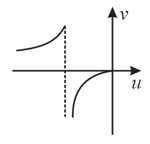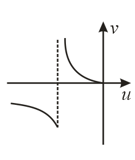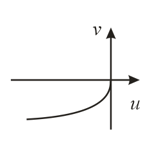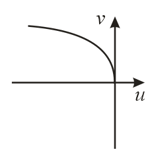Optical Instruments: Human Eye
Optical Instruments: Human Eye: Overview
This topic covers concepts, such as, Human Eye, Pupil, Far Point & Presbyopia and Its Removal etc.
Important Questions on Optical Instruments: Human Eye
What is astigmatism? How is it corrected?
A student studying the similarities and differences between a camera and the human eye makes the following observations:
Both the eye and the camera have convex lenses.
In order to focus, the eye lens expands or contracts while the camera lens moves forward or backward.
The camera lens produces upside down real images while the eye lens produces only upright real images.
A screen in camera is equivalent to the retina in the eyes.
A camera adjusts the amount of light entering in it by adjusting the aperture of the lens. In the eye the cornea controls the amount of light. The correct statements are :
Which of the following helps to keep the shape of the eye?
A certain far-sighted person cannot see objects closer to the eye than. The power of lens which will enable him to read at a distance of will be
A person can focus objects only when they lie between and from his eyes. What spectacles should he use to increase his maximum distance of distinct vision to infinity.
A presbyopic patient can see objects only when they lie between and from the eye. Then the focal length of the correcting lens required while reading is
Loss of ability of eye to focus on near and far object with advancing age is called
The focal length of the eye lens increases when eye muscles:
Image formed on retina of eye is proportional to:
Circular part in the centre of retina is called
What is the nature of the image formed by eye lens? (Choose from the following: Real / Virtual)
A person cannot see the objects clearly which are nearer than and farther than For normal vision, he should wear a bi-focal lens in which :
Assertion: If a glass slab is placed on the letters of different colours, the apparent depth will be minimum for the violet-coloured letters.
Reason: The speed of light in the glass is maximum for violet colour among all the visible colours.
A far sighted person can see the objective which are at least distance and cannot see nearer to it. What should be the power of the lens he should wear, so that he can see the object even at distance ?
Match the column according to correct graph for real object.
| (A) | Concave mirror | (P) |  |
|
| (B) | Convax mirror | (Q) |
|
|
| (C) | Convax (Converging) lens | (R) |  |
|
| (D) | Concave (diverging) lens | (S) |  |
When you are looking at objects closer to the eye, the ciliary muscles ____ (contract/relax)
The change in focal length of an eye lens is caused by the action of the
Which part of the human eye controls the amount of light entering into the eyes?
What focal length should the reading spectacles have for a person for whom the least distance of vision is . (The distance of normal vision is .)

